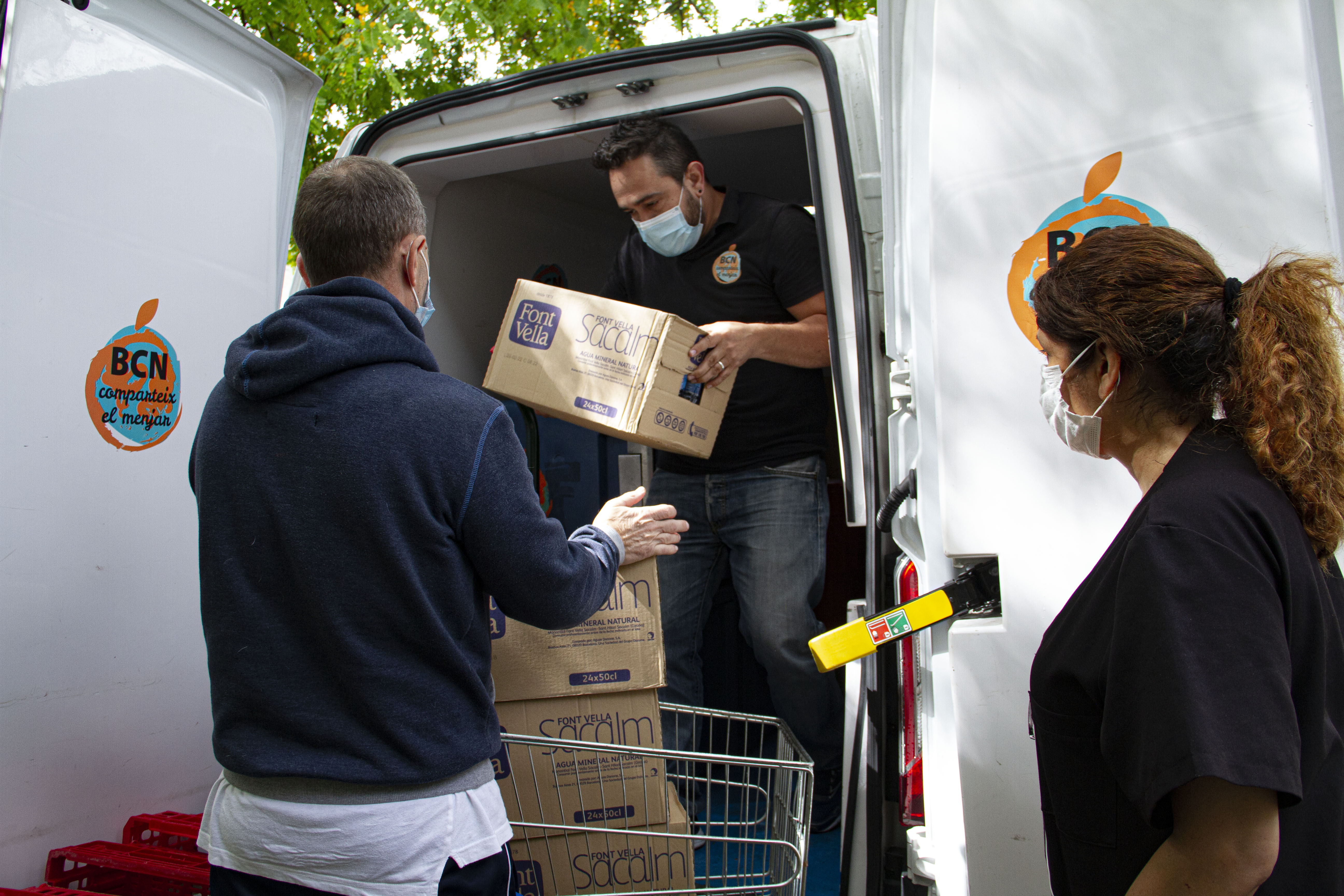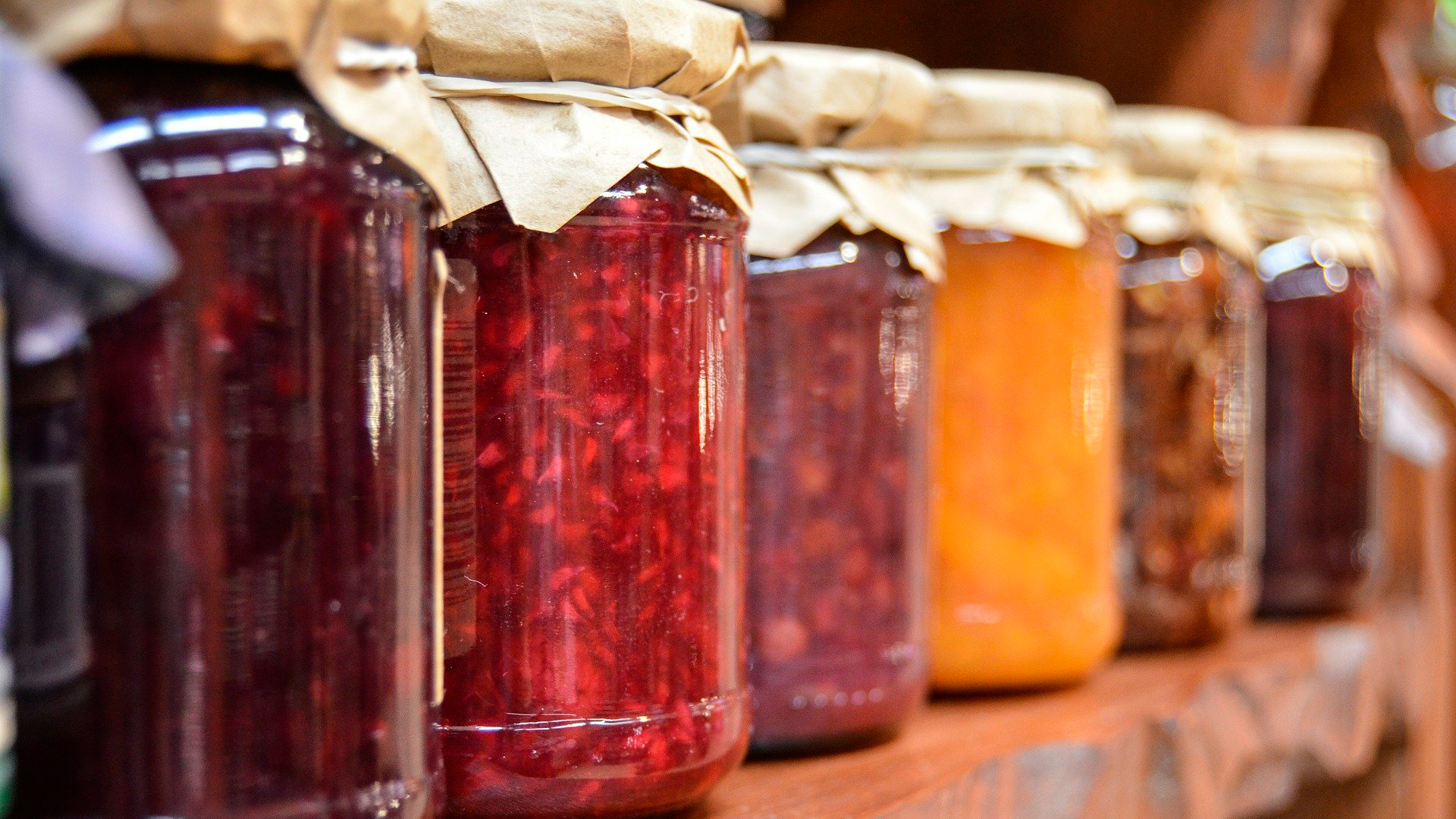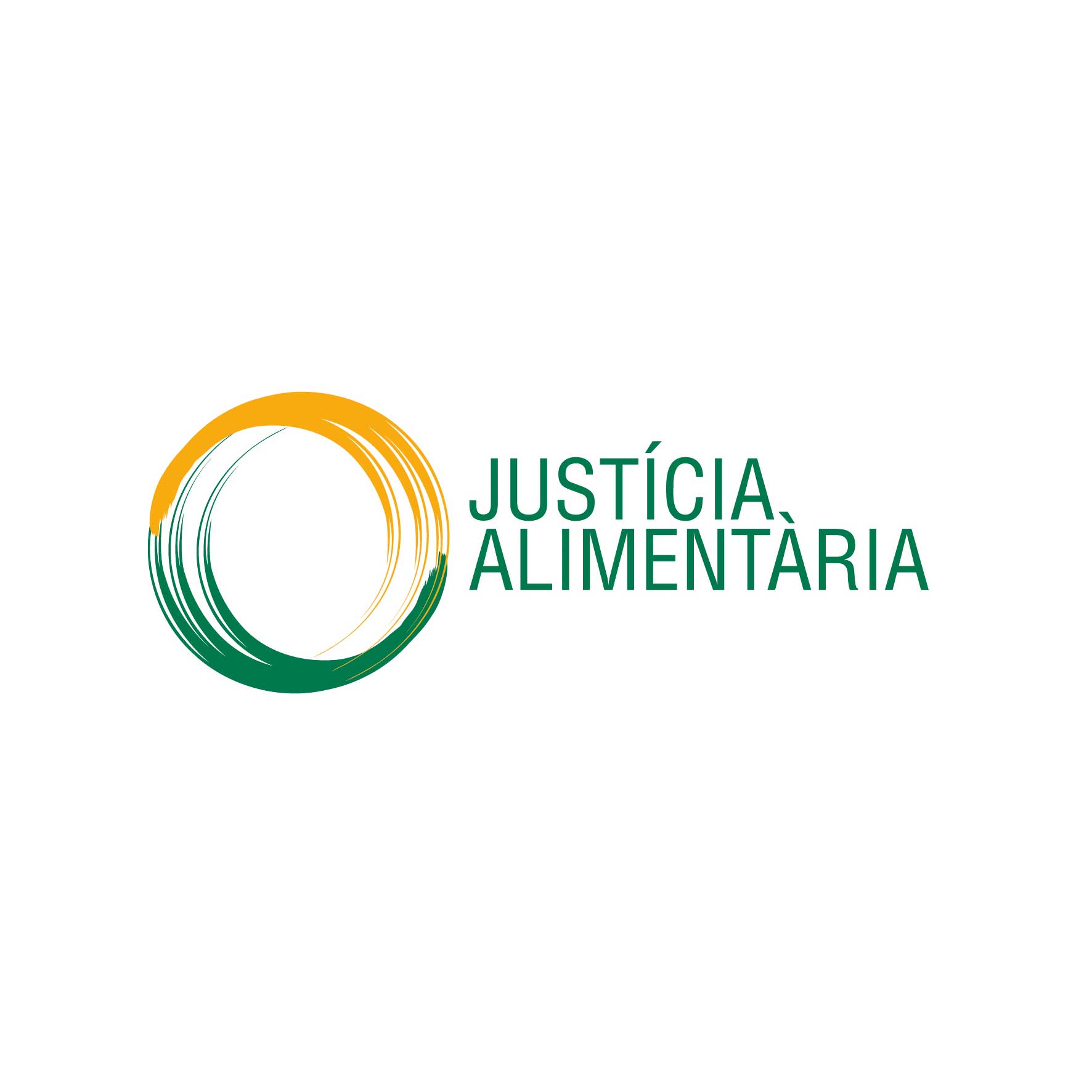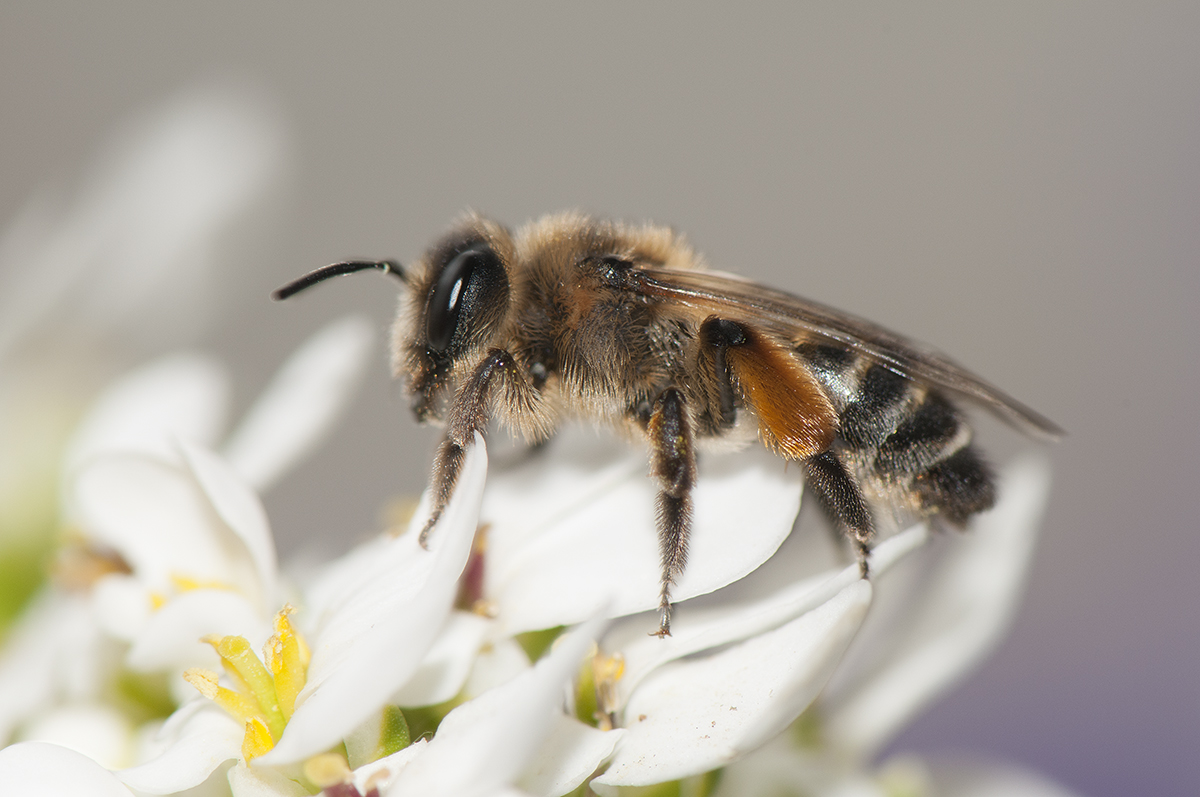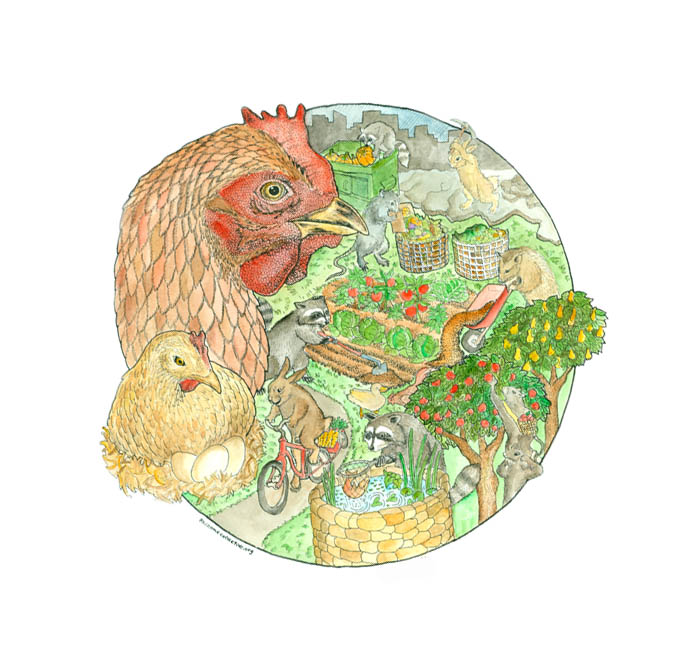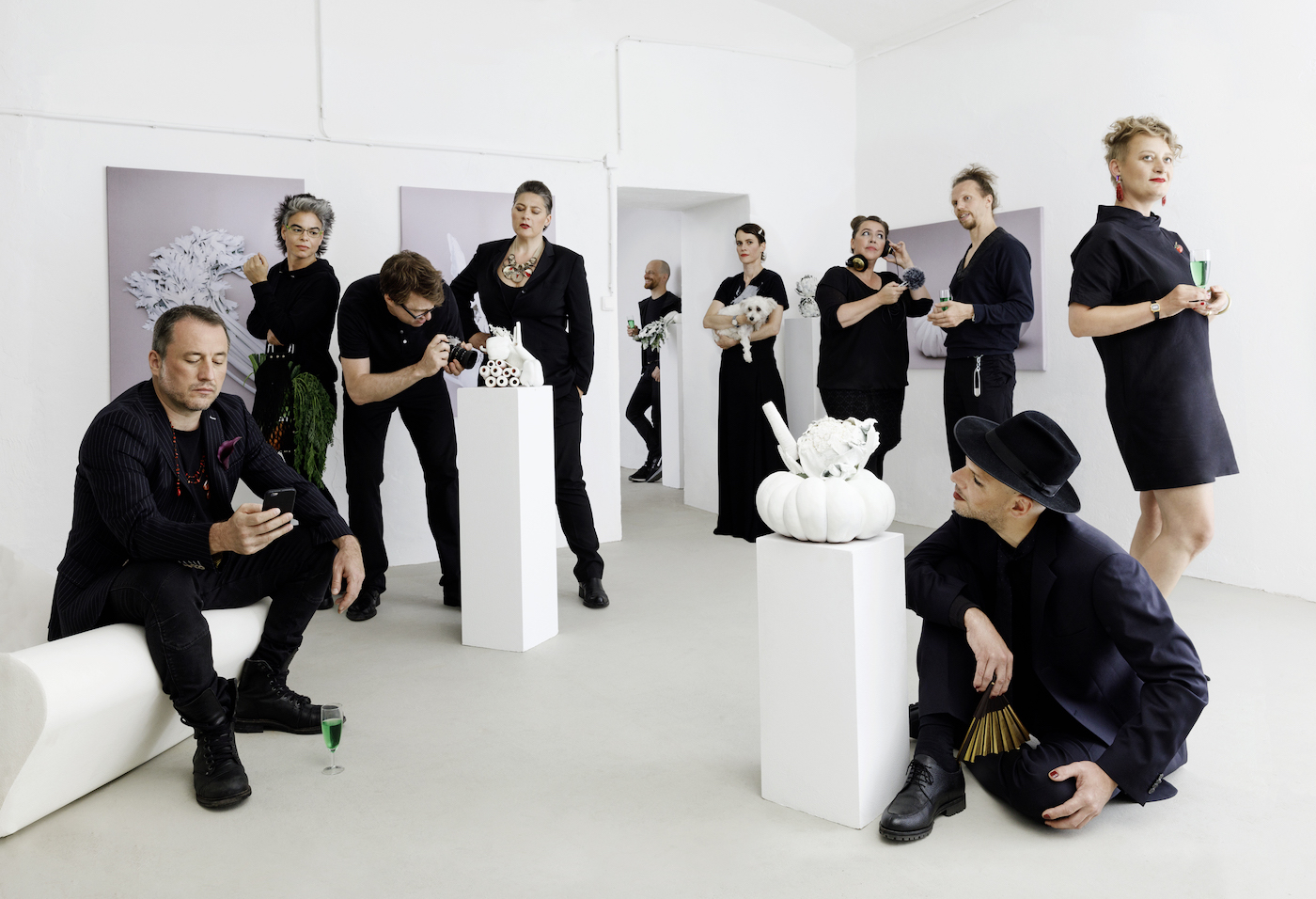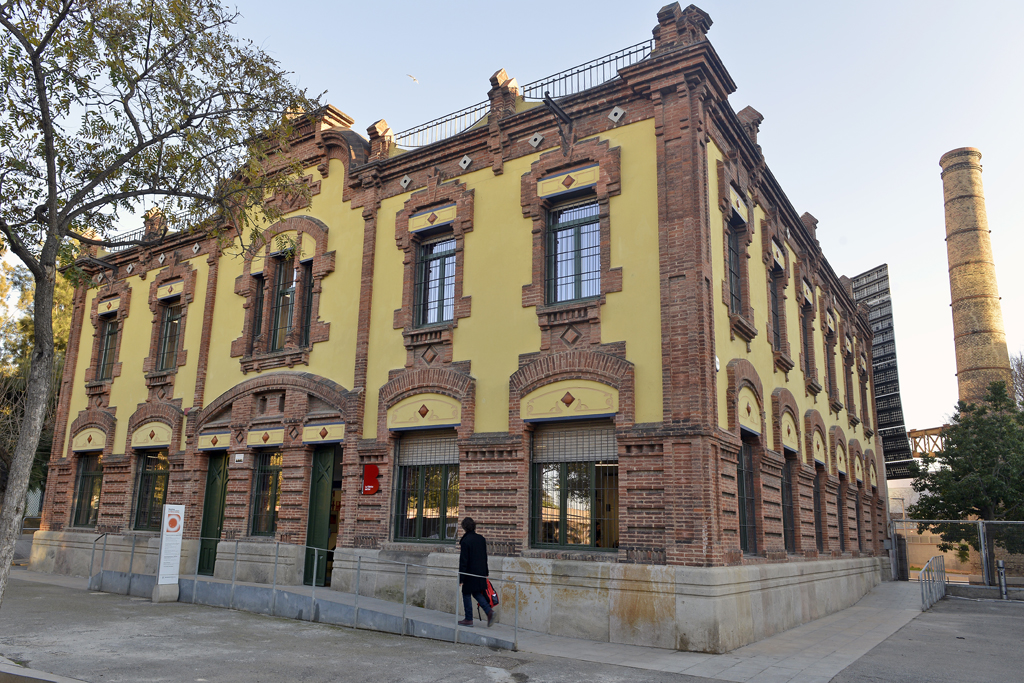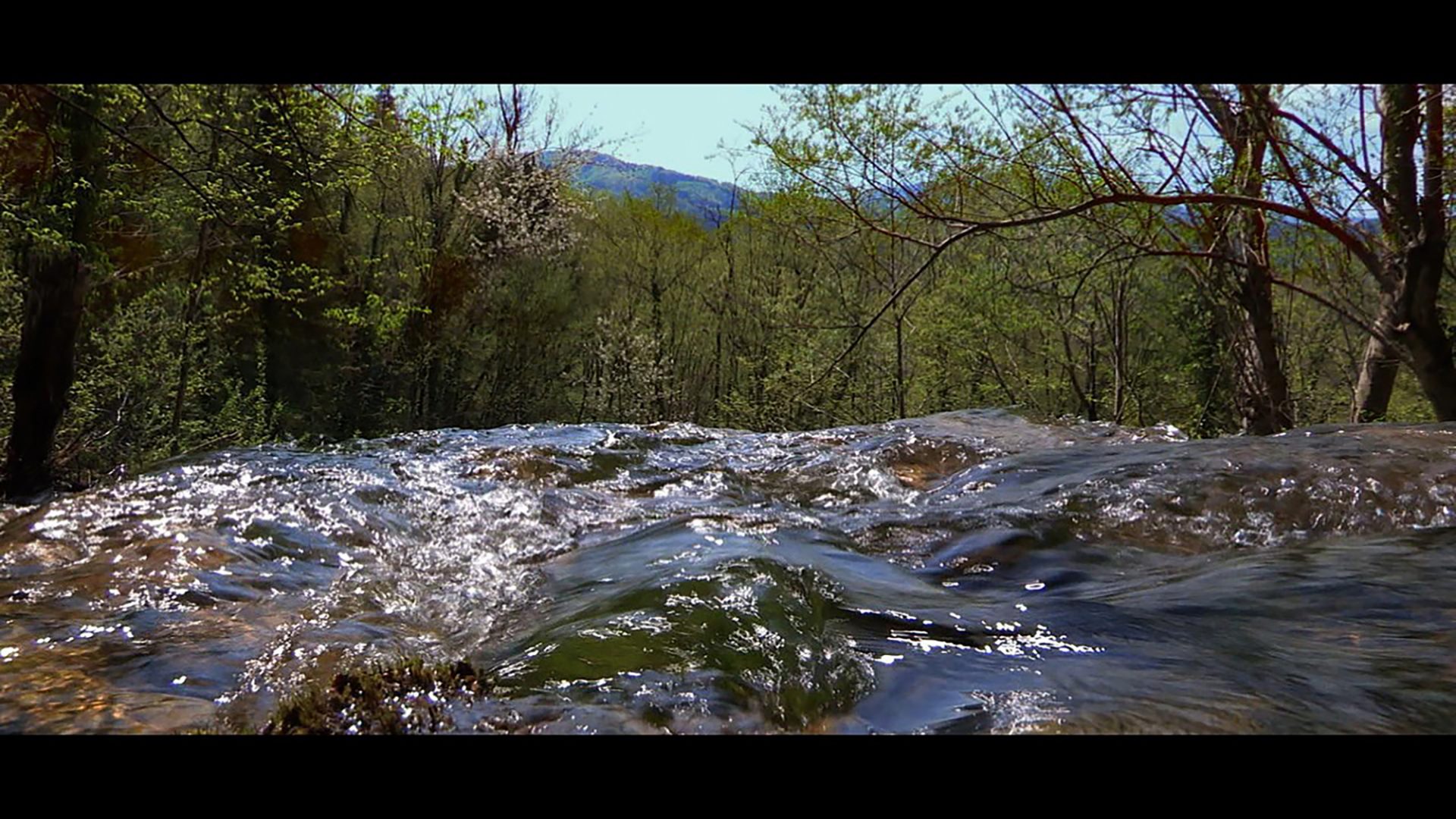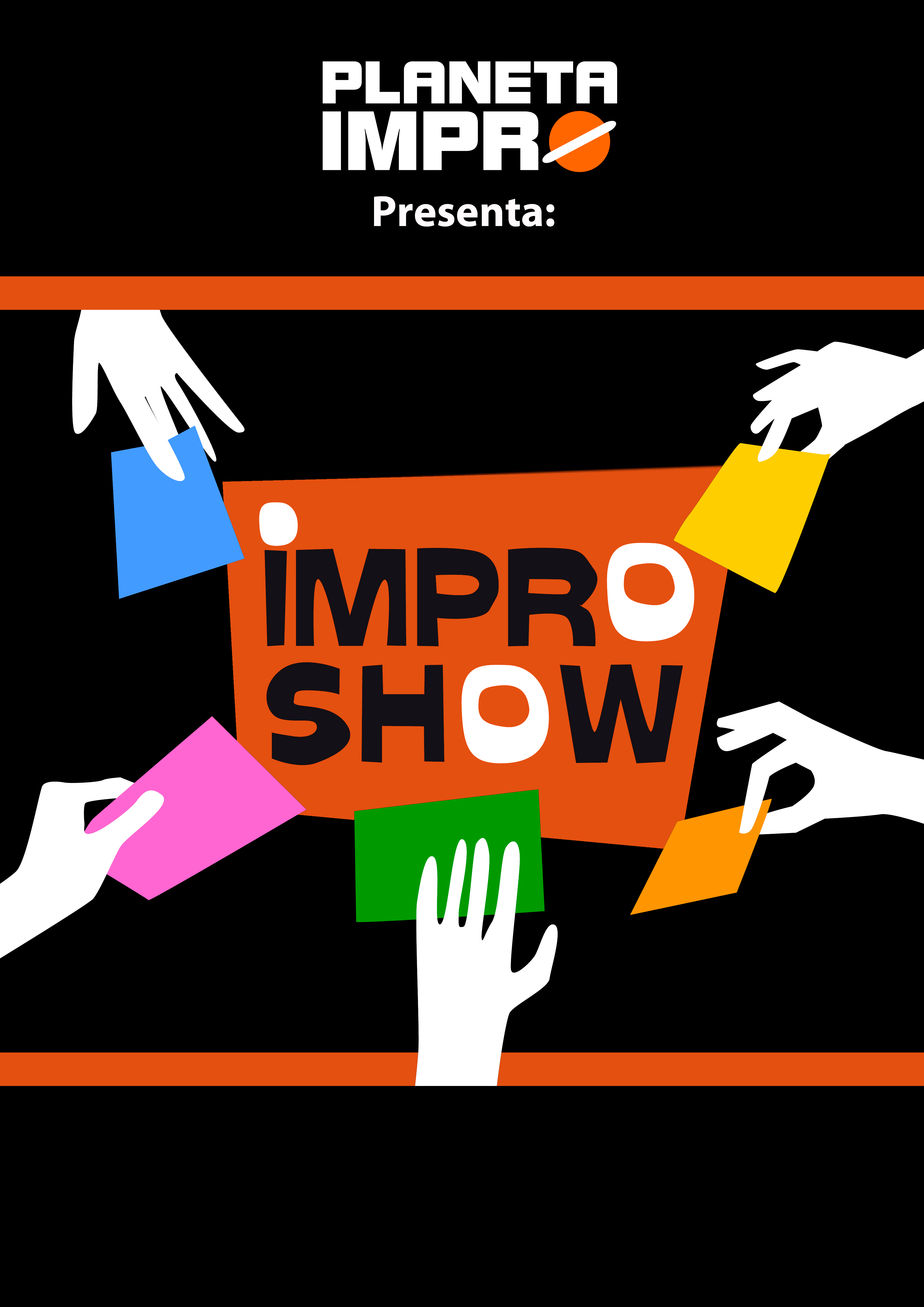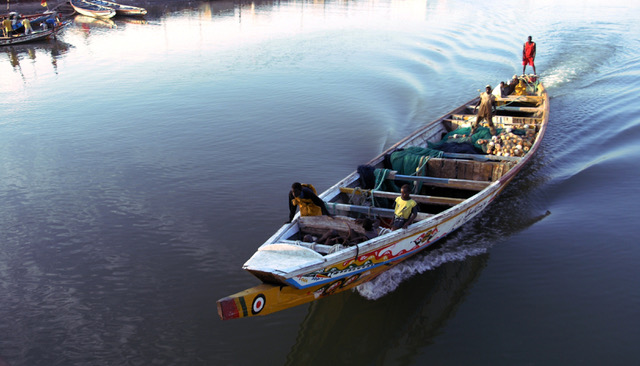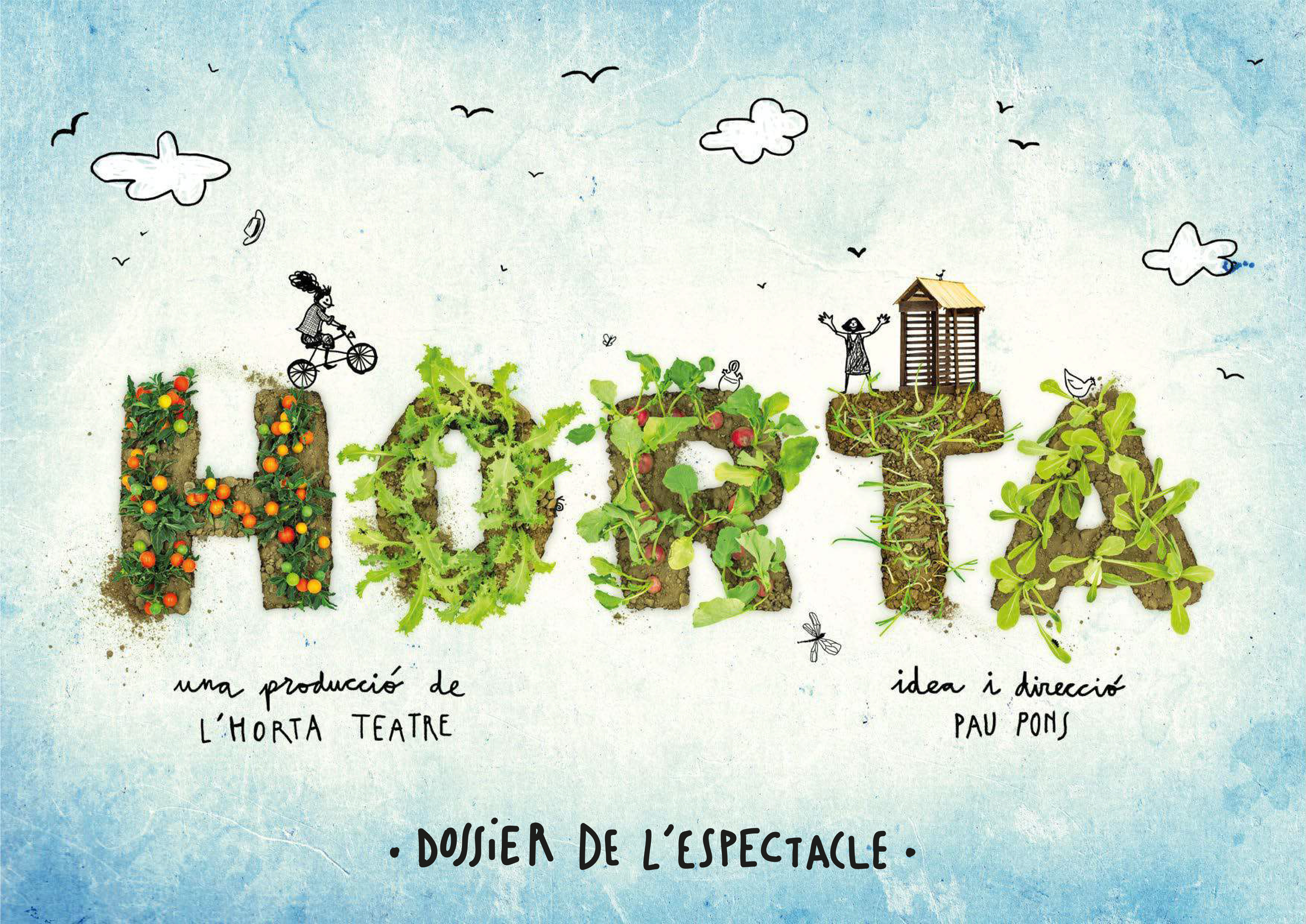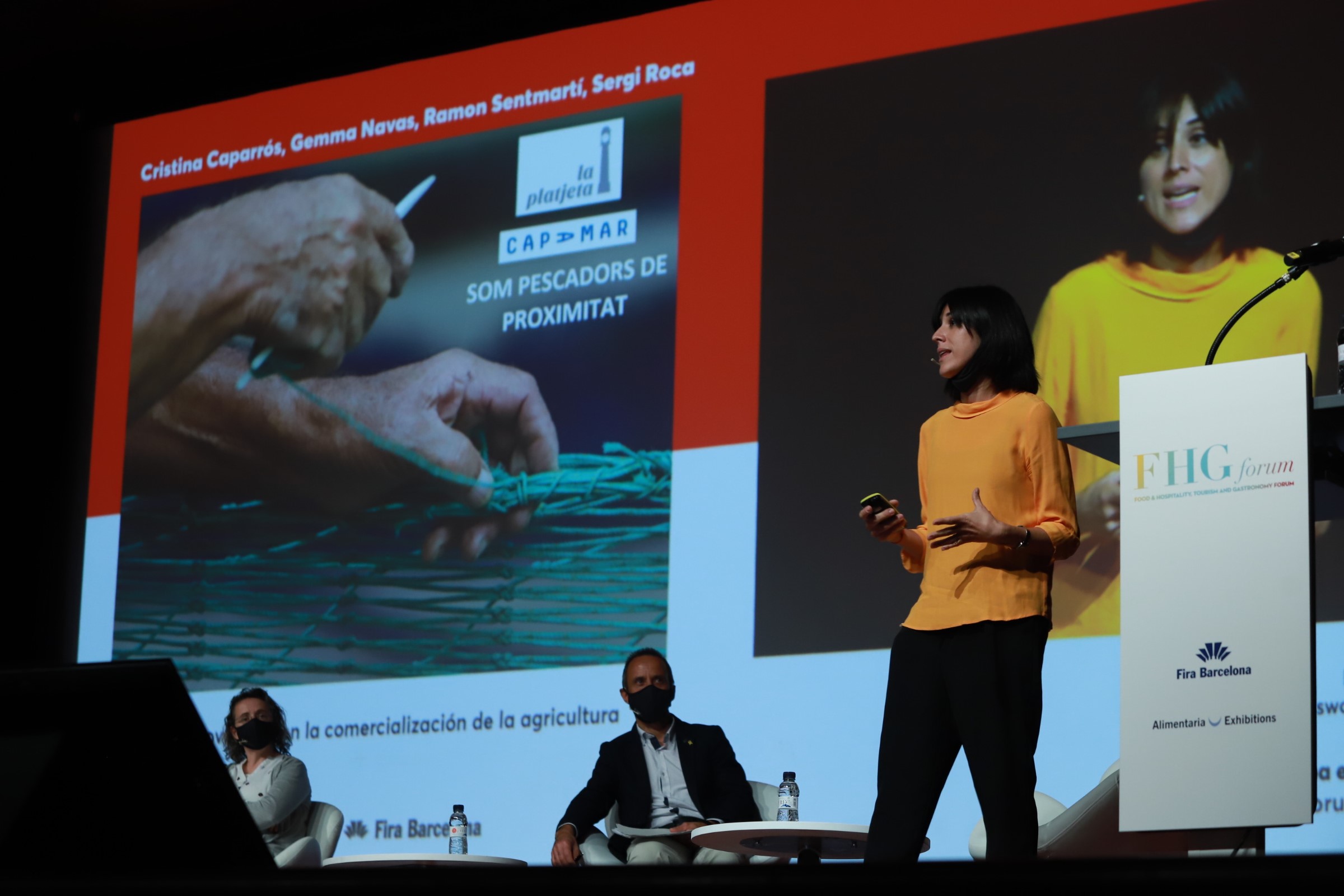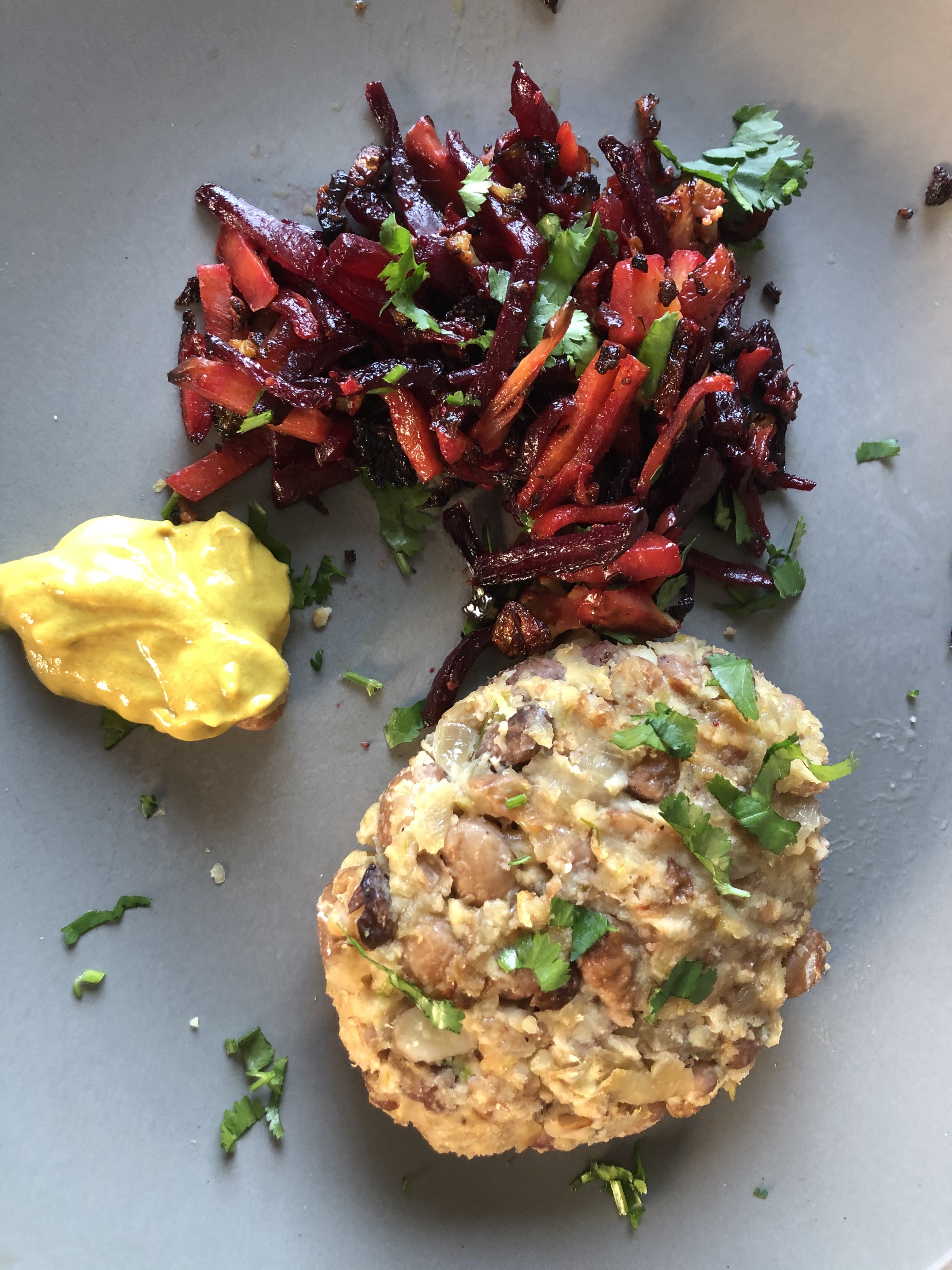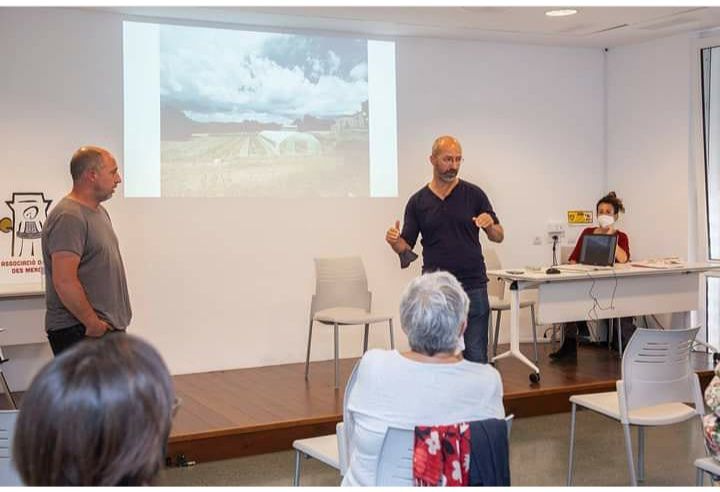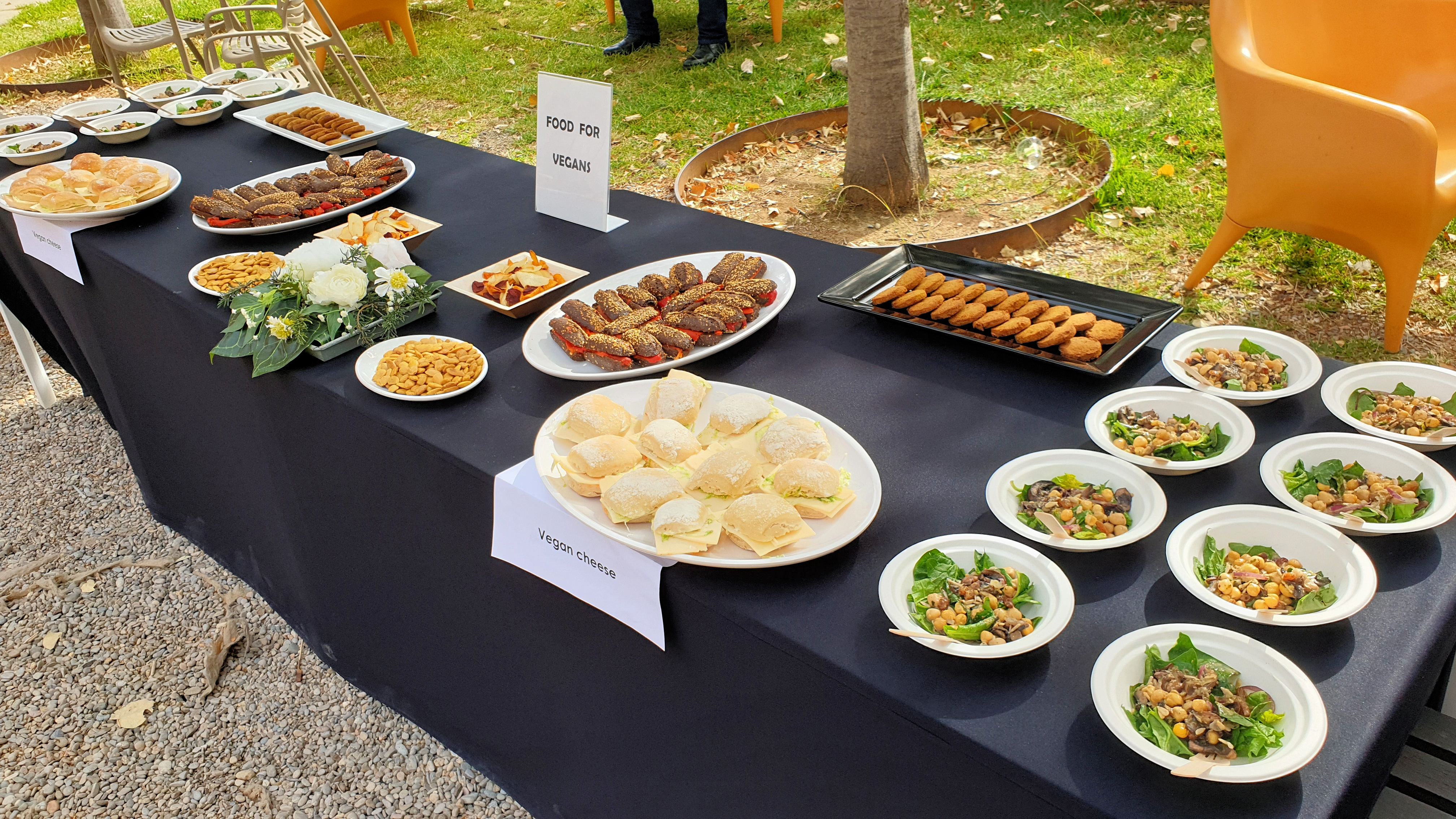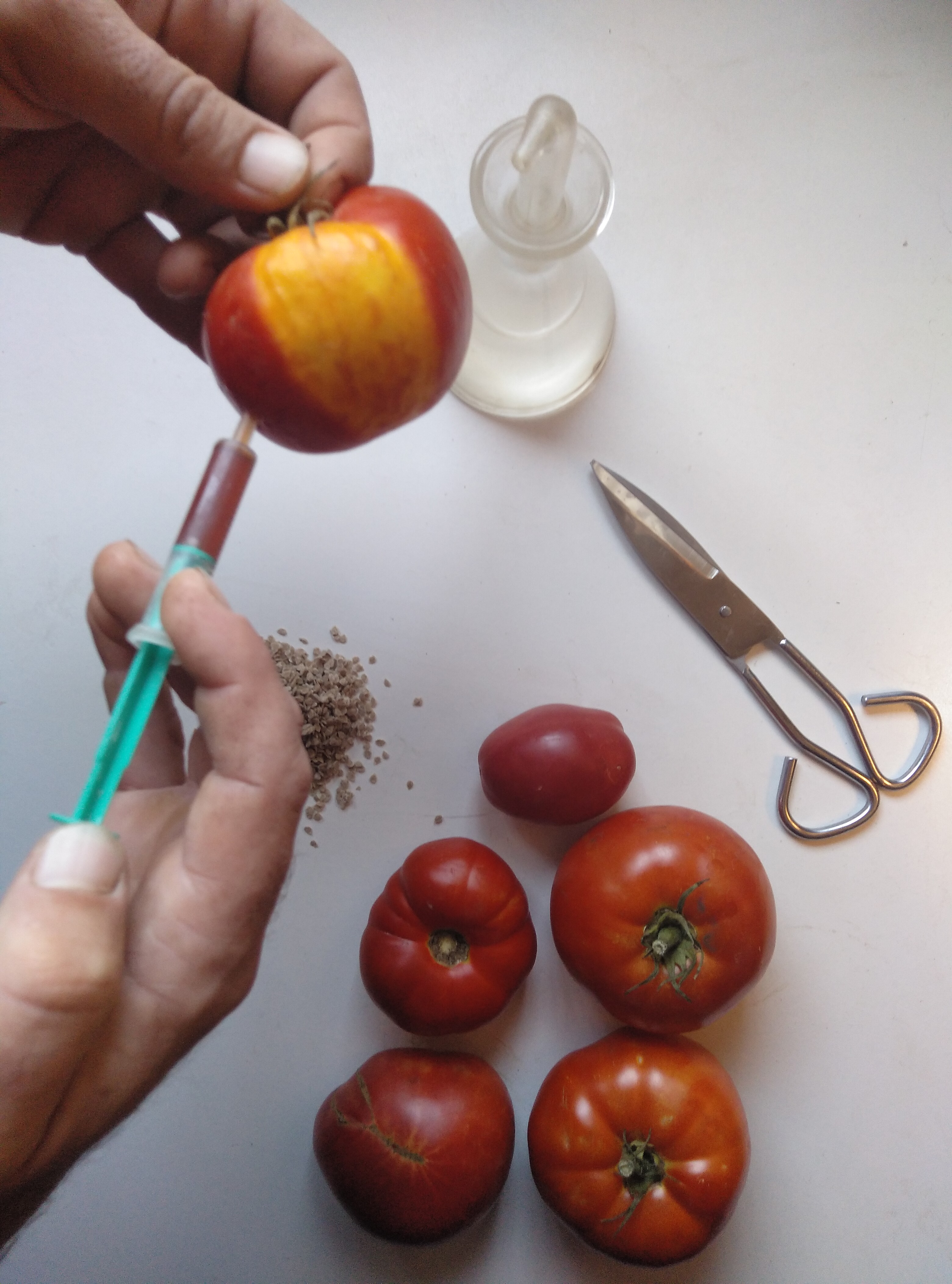In this programme you will find practical ways for moving towards a diet that includes habits which improve quality of life for ourselves and the people around us.
You learn how this affects our decisions, how we choose what we buy and where we buy it, all in a cheerful, fun and creative way.
We discover how to improve our surroundings and our inner selves, in order to feel full of life.
Our food choices have an impact on the environment; we review various diets (carnivorous, omnivorous and vegetarian) and finally focus on the plant-based diet.
Sustainable Food Citizen Week
Video resum de la Setmana Ciutadana de l'Alimentació Sostenible 2021
The activities of the Sustainable Food Citizen Week
Sustainable Food Citizen Week provides an opportunity to understand the relationship between food habits and cross-cutting aspects such as the climate emergency, local economic development, culture, politics, social rights and health. A week dedicated to citizens, in which you will achieve knowledge, reflection and debate about the main issues of the following activities.
Gastronomic heritage
- October 18th - 18.00 HBetevé broadcastingTelevised cooking workshop
- October 19th - 18.00 HBetevé broadcastingTelevised cooking workshop
How can you adapt sustainable food to healthy living?
Batch cooking consists in cooking for the whole family and investing a little time so you can make nutritious everyday meals, at home and for your lunch box.
BREAKFAST: habits as simple as a good glass of water, with sea water and lemon. Breakfasts such as shakes or smoothies, which you can warm up in winter. You will discover recipes such as rice pudding and pear, quality-bread sandwiches and an omelette made from organic eggs.
LUNCH: important notions on how to structure a dish with different groups of foods. A dish is not the same for a teenager as a middle-aged person. You can cook the same for all the family but put in what each person needs. You should always add vegetables in season, wholemeal carbohydrates, some raw vegetables, sprouted and fermented foods, etc. You will discover recipes such as baked pumpkin with curry; lentils cooked with adobo, sprouted ... and seeds; chickpeas with prawns; wholemeal rice with mushrooms; and lettuce head salad with carrot, olives and chopped chives. Wholemeal pasta with courgettes, mushrooms, squid with carrot and beetroot.
EVENING MEAL: an evening meal or supper should be light and eaten as early as possible. You will discover recipes such as pumpkin, sweet potato and oatmeal soup; vegetable pudding with carrot and broccoli; fish soup with noodles, and grilled fish in a sauce.
- October 20th - 18.00 HBetevé broadcastingTelevised cooking workshop
Getting children away from processed food as much as possible.
At home, we can organise menus very quickly, using fresh and seasonal local produce.
Not forgetting breakfasts and snacks and their natural desire for sweet food; we offer some great solutions.
Waste vs Good use
- October 16th - 12.00 HParc de la BarcelonetaTalk
The mission of the NGO Nutrition Without Borders is to contribute to reducing nutrition inequalities throughout the world, in accordance with human rights. They act from the perspective of cooperation, training and empowerment, promoting the balanced use of the world's food resources and solidarity amongst peoples of all nations, in line with the 2030 Sustainable Development Goals.
At Nutrition Without Borders, we are aware of the economic crisis which is affecting some sectors of the population, a factor that increases vulnerability and leads to poverty and social exclusion.
“Sharing food” is an initiative for making the best use of food resources and networking to help prevent food waste and reduce the impact of poverty in the Barcelona Metropolitan Area. The project aims to protect the universal right to food for Barcelona citizens at risk of social exclusion, while also cutting down on food waste and helping reduce the city's ecological footprint to favour the planet. - October 16th - 12.30 HParc de la BarcelonetaWorkshop
What foods are naturally available in each season? How can we maintain a varied, healthy and sustainable diet? This master class guides participants towards sustainable, local and seasonal food. During the session, we will see various strategies for healthy cooking and seasonal food conservation, so we can enjoy them all year round and get the most out of them.
The master class also shares practical ideas for conserving, storing and cooking the food, sharing explanations about the social and environmental importance of our food habits with the audience. Gaining a culture of better food use and providing specific tools for getting the most out of food products. Advice is given on how to eat a complete, balanced diet without dying in the process. Where should we store carrots? What do we do with so many tomatoes? What we can do with summer fruit? If you would like to hear some practical, everyday advice that is fun and visual, don’t miss this class! - October 16th - 17.30 HParc de la BarcelonetaRound table
Relationships of power within the agri-food system and their impact on public policies
For over a decade the loss of food sovereignty has been recognised as a key factor in the impoverishment of the people. This basically affects people living in rural environments, but there is an increasing amount of protest in cities, due to a loss of control and decision-making in terms of what we eat every day.
Due to the situation created by the Covid-19 pandemic, we have become even more aware of the
current food system's inability to respond to the general public's needs, especially in sectors of society with pre-existing inequalities.
All of these conditioning factors of poor diet, together with advertising and labelling, generate health problems in an increasingly large proportion of society.In response to this, alternative initiatives to food banks have arisen in many cities, with a transformative focus on these social inequalities. Likewise, there is a clear need for institutions to include public policies that guarantee access to this human right.
From the perspective provided by food sovereignty, we aim to tackle the capacity and decision-making processes which determine what is produced, where it is produced, how
it is produced and on what scale, as well as how these social inequalities are created.
Urban rurality and biodiversity
- October 16 at 13:40 hJardí dels TarongersTalk
Bees are one of the most important, and unknown, groups of pollinators. The aim of this talk is to showcase the life of bees, and also serve as an opportunity to understand the role that these insects play, together with the hosts, the plants, in the ecological balance of the planet. The reality is that humanity is facing a disturbing problem: the decline of bees. It is a subject that is being talked about more and more, and that we cannot overlook, as the Museum of Natural Sciences. The causes are numerous, and closely linked to the long litany of changes to the environment prompted by human activity. Now is the time for us to understand what we have done wrong and prepare a guide of best practices that can be used to recover the biodiversity that has been lost.
- October 16th - 16.30 HPlaça ReialTalk
The dynamics of this activity involve a mandala. We draw conclusions on how urban agriculture has fared this year, where we have made progress and where not, where we are headed and the importance of agriculture within the city, with the participation of various people connected to urban agriculture and others who will help us to connect with our bodies.
This is an open, participative activity where the audience can contribute their wishes and materials to the mandala. Ritual for closing and opening the year, as it has been a busy one in urban agriculture. - October 16th - 17.30 HJardí dels TarongersRound table
The Metropolitan agricultural belt is the on-site embodiment of the need (exacerbated by climate change and the biodiversity crisis) for healthy, wholesome and sustainable local supplies. It starts in the Metropolitan Area and includes the entire Metropolitan Region: it has a bottom-up structure, based on the view, already accepted by some city councils, that we need to preserve or create an agricultural belt around every municipality. We are therefore talking about a belt of belts.
To make this possible, the two main challenges we face are access to production resources and guaranteed fair prices. And in addition to this demand for “minimum prices for food and maximum prices for land”, there is the vital importance of adopting large-scale healthy, mitigating and regenerative agronomic practices. This means that financial aid for farmers has to involve cross compliance, but also has to be available to everyone, not just the big producers.
Ecological footprint
- October 14th - 19.30 HPlaça de Sant JaumeShow
The start off the week will be a chorus, musical, and participative. Having their say will be the real heroes of sustainable food, those involved in the food cycle: the fishermen, drivers, chefs, farmers, ranchers, market vendors. The speech will be intertwined with the large mechanical orchestra of Cabo San Roque, distributed in the form of a sound mural in front of the City Hall, along with the active participation of the public, in a collective musical creation composed especially for the occasion. A show that highlights all the participants behind the food supply network and gives them a voice.
- Scenography and musical composition: Cabo San Roque
- Stage direction and coordination: Edi Pou
- Idea and concept: Virginia Angulo / Martín Garber
- October 16th - 20.00 HTeatre del CCCB, Jardí dels Tarongers, Plaça del Rei, Parc de la BarcelonetaShow
A unique musical group, the Vegetable Orchestra, plays instruments made from fresh vegetables. The use of various vegetable instruments makes for a unique musical and aesthetic universe. The Vegetable Orchestra covers the most diverse musical styles, combining genres from electronic music to jazz. The newly created instruments determine the resulting sound. A Vegetable Orchestra concert appeals to all five senses.
- October 17th from 10.00 to 11.00 H and from 12.00 to 13.00 HLa Fàbrica del SolVisit / Tour
The building strikes a balance between technology and nature, making it an efficient and sustainable space.
Visit it to learn about the various environmental solutions it utilises, such as renewable energy generation, water conservation, biodiversity conservation and sustainable mobility, as it has earned a “Friend of the Bike” certificate and is the only refurbished building to have a Green Seal, among others.
Proximity
- October 16th - 12.30 H and 17.00 HParc de la BarcelonetaShow
Horta is a show that recuperates values rooted in the earth and the most genuine ancestral customs, bringing them up to date and adapting them to the interests and knowledge of younger children. An itinerant journey through various transformed theatrical spaces in Horta, where the senses and the children are the protagonists: touching the earth, listening to and singing songs, discovering stories and old objects and smelling herbs.
Joana and Esther, the two stars of this story, have everything ready: this is the time to wake the earth up and start the cycle, as they were shown by their granddad Vicent and their grandma Maria.
An experience that combines the power of oral narration with the magic and poetry of theatrical and performance resources. Through our senses, we discover what Horta is, with tenderness and emotion, but above all, with humour, entertainment and education.The countryside is part of our tradition and our future and... Who knows, the children in the audience today may become the great agronomists of the future!
- Local fish, fishermen from Barcelona. How to consume local fish in a sustainable and responsible wayOctober 17th - 11.00 HParc de la BarcelonetaTalk
Talk presenting local fish consumption projects such as La Platgeta, which will provide the keys to consuming fish in a healthy, fair, sustainable and responsible way.
- October 17th - 14.00 HParc de la BarcelonetaCulinary experience
Would you like to taste a menu put together by healthy, sustainable groups? Let yourself be seduced by their culinary proposals. Come, taste, and become part of the change.
When designing the menu, we took the following into account:
- The Mediterranean diet as the basis for the project: seasonal vegetables, legumes and fish.
- The food offered to us by the producers of local, seasonal ecological produce.
- The dishes have been designed with culinary combinations, in order to enjoy the territory's food, produced using healthy culinary techniques.
The menu is cooked by eighteen chefs who belong to the network; we are from Catalonia, Valencia, Aragon, Madrid, the Balearic Islands, the Canary Islands and Galicia.
We serve the menu accompanied by the producers who supplied the vegetables, legumes, oil, wine and fish. We will also be accompanied by a manager of short-circuit marketing, a nutritionist and an educator; we would like you to meet all of the people who make the change of model possible in our groups, a strategic sector for furthering this change in the food model.Menu
- Cream of sweet potato with hen-of-the-wood mushrooms
- Raw vegetable salad with pomegranate and orange vinaigrette
- Chickpea hamburger with spinach and young garlic sauce
- Beetroot pie with carob sauce
We hereby inform you that we cannot guarantee that the meals served during this event are free of substances that may cause some type of allergy or food intolerance.
More week
- October 21th - 18.00 HC del Rec, 27Talk
Discover the evolution of the Horteras de la Ribera de Barcelona Consumer Group, seen from the experience of the producer and the consumer, with Dulu and Enric (Hort3Sols farmers) and Julien Telle (Les Horteres consumer) .
- October 21th from 18.00 to 19.15 HEspai Consum ResponsableTalk
Discover a catering service with sustainable job placements, use of non-polluting and reusable materials and with sustainable food products. We use seasonal and local chemical-free products.
- October 21th from 18.30 to 20.30 HLa Lleialtat SantsecaRound table
In this conference, we will explain how the new genetically-modified organisms work (GMO) and any resulting complications that may arise for farmers in terms of feeding the human race and how they are treated in the future, depending on how they are classified.







